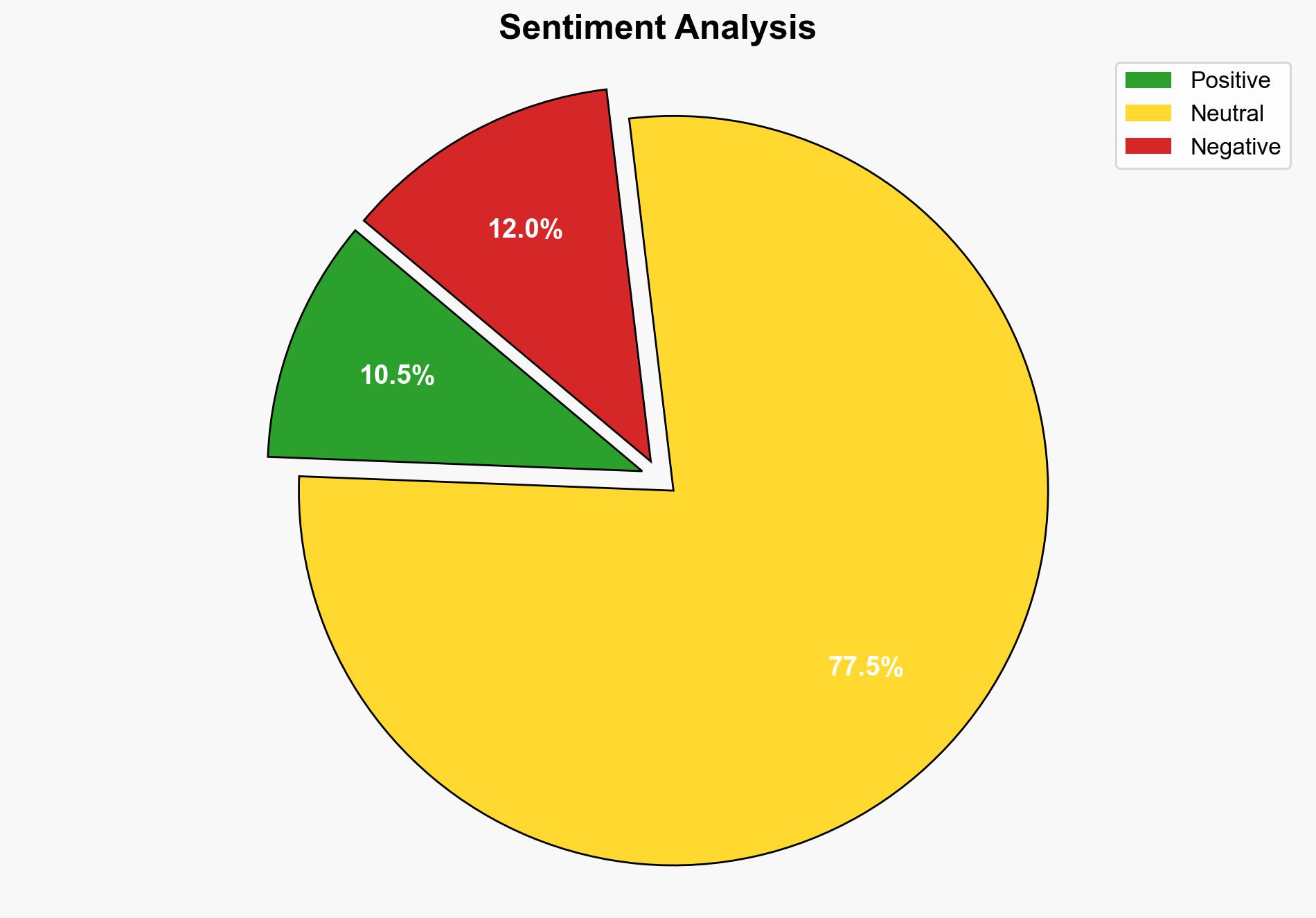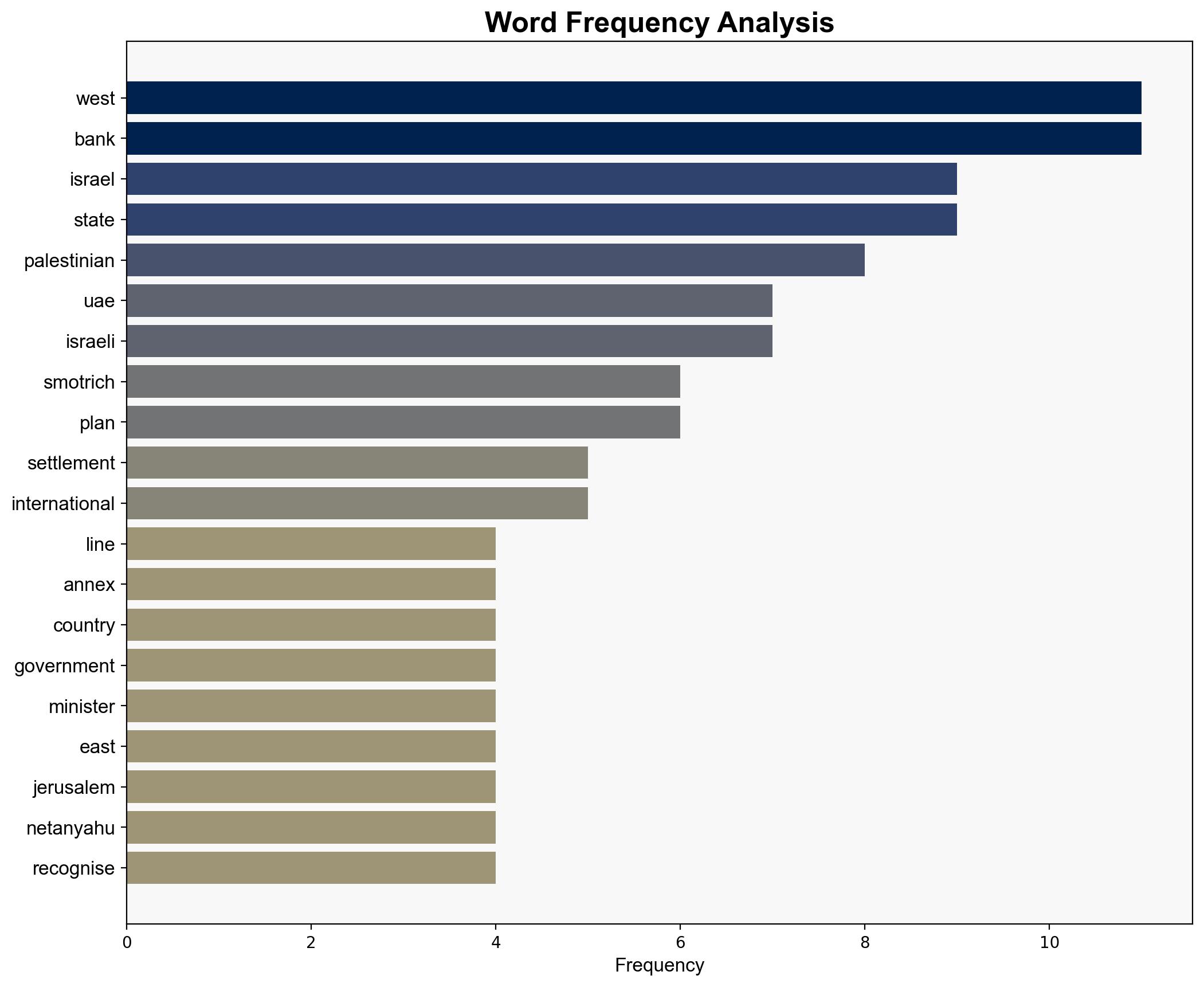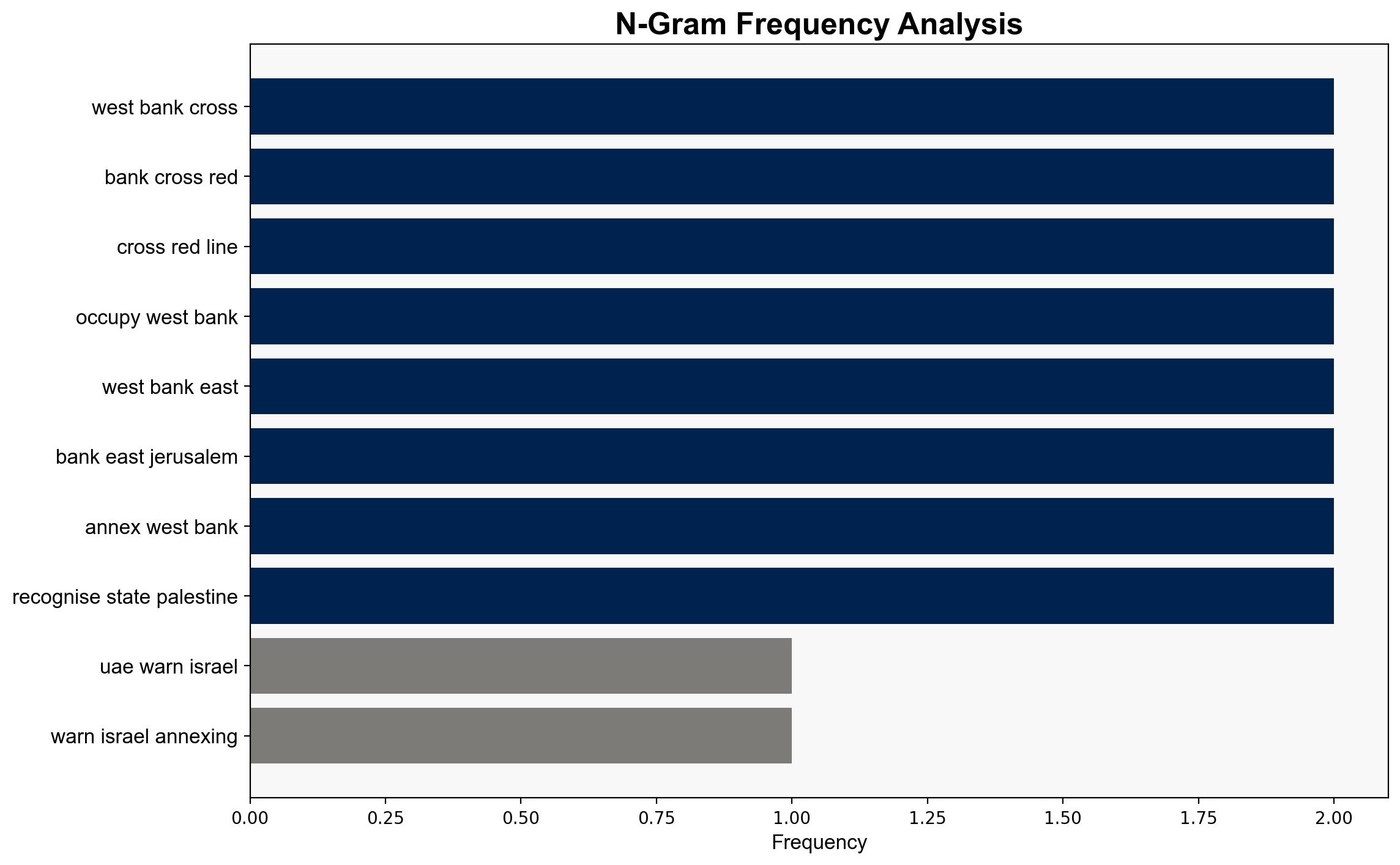UAE warns Israel that annexing West Bank would cross ‘red line’ – BBC News
Published on: 2025-09-03
Intelligence Report: UAE warns Israel that annexing West Bank would cross ‘red line’ – BBC News
1. BLUF (Bottom Line Up Front)
The UAE’s warning to Israel regarding West Bank annexation represents a significant diplomatic tension that could undermine the Abraham Accords and destabilize regional relations. The most supported hypothesis is that the UAE aims to maintain its diplomatic achievements while supporting Palestinian statehood aspirations. Confidence level: Moderate. Recommended action: Engage in diplomatic dialogue to reaffirm commitments under the Abraham Accords and explore alternative solutions to the Israeli-Palestinian conflict.
2. Competing Hypotheses
1. **Hypothesis A**: The UAE’s warning is a strategic move to preserve the Abraham Accords and its regional influence by opposing actions that could destabilize the Middle East.
2. **Hypothesis B**: The UAE’s statement is primarily a symbolic gesture to appease domestic and regional audiences concerned about Palestinian rights, without intending to take concrete actions against Israel.
Using ACH 2.0, Hypothesis A is better supported due to the UAE’s historical emphasis on regional stability and its role in brokering the Abraham Accords. The explicit warning about crossing a “red line” suggests a genuine concern for potential destabilization.
3. Key Assumptions and Red Flags
– **Assumptions**: It is assumed that the UAE has the leverage and willingness to influence Israeli policy through diplomatic means. Another assumption is that the Abraham Accords are a priority for UAE’s foreign policy.
– **Red Flags**: Lack of concrete actions or sanctions proposed by the UAE raises questions about the seriousness of their warning. The absence of a response from Israel could indicate either dismissal or strategic silence.
4. Implications and Strategic Risks
– **Geopolitical Risks**: Potential deterioration of UAE-Israel relations could lead to broader regional instability, affecting other signatories of the Abraham Accords.
– **Economic Implications**: Disruption in diplomatic relations might impact economic agreements and investments between the UAE and Israel.
– **Escalation Scenarios**: If annexation proceeds, it could trigger increased tensions and violence in the region, potentially drawing in other Middle Eastern states.
5. Recommendations and Outlook
- Engage in multilateral discussions with key stakeholders to reaffirm commitments to the Abraham Accords and explore peaceful resolutions.
- Monitor Israeli domestic politics for shifts that could influence annexation plans.
- Scenario-based projections:
- Best Case: Israel halts annexation plans, leading to strengthened regional cooperation.
- Worst Case: Annexation proceeds, resulting in regional conflict and collapse of diplomatic accords.
- Most Likely: Continued diplomatic tension with potential for negotiation and compromise.
6. Key Individuals and Entities
– Lana Nusseibeh
– Bezalel Smotrich
– Benjamin Netanyahu
– Palestinian Authority
7. Thematic Tags
national security threats, regional diplomacy, Middle East peace process, geopolitical stability





